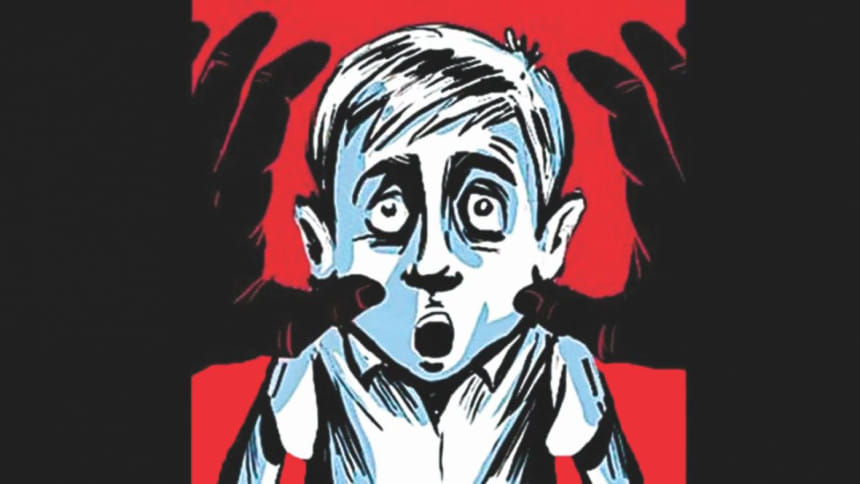When did torture become the norm?

It has become apparent that we live in a country where being signatory to the Convention on the Rights of the Child means little more than a perfunctory nod to the accepted international code of propriety. It serves as neither a call to action, nor a stand against the rampant human rights violations that have become second nature to our society. How can we claim to have taken any measures to protect our children when there are over 6 million of them employed in over 22 million places of work?
And dare we call the incidents of workplace child abuse abnormalities when there are presently 1.3 million engaged in the worst forms of child labour (WLCF) according to the Bangladesh Bureau of Statistics? Child labour is a public spectacle in Bangladesh, transpiring in brickyards beside our shiny new apartment buildings and in automobile repair shops at every corner of town. Why does it come as a surprise to us that employers often go unpunished for subjecting children to inhumane conditions and need not take any responsibility when child workers are wounded at the time of work?
But the most distressing of all transgressions is the brutal torture of an 11-year-old child by two co-workers of the same age. Aaron, who worked in a motor workshop in Mohammadpur, was pumped full of air by his fellow employees Shariful and Rabbi and then abandoned in that state. Since the first incidence of this sort last year, in which 13-year-old Rakib succumbed to internal injuries after being pumped with air, there have been similar brutalities committed by employers. But how has this sadistic cult infected even our youngest? How has murder become a child's pastime, a source of entertainment? What else can we expect when we take away a child's youth and replace it with all the pitiless work of a grown man's world?
And yet, even the thought of our children being in schools instead of factories is barely reassuring. Between January and July 2016, according to Ain o Salish Kendra, the highest number of incidents of violence against children, 271 out of 636, were in fact cases of torture perpetrated by teachers. Incidents of rape were a close second. Is it so difficult to see that there is something woefully amiss in a society where teachers and rapists are elements of the same criminal subset? Where Sathi, a 14-year-old schoolchild, is driven to suicide because her teacher publicly humiliates her for failing to pay an exam fee of a meagre Tk 80?
Here it takes children showing up in roadside ditches and in septic tanks of former UP members and infanticide of the most perverse nature to get our state to lift a finger. Sure, the case filed over the killing of four children in Habiganj is moving forward. Yes, six people were sentenced to death and another five to varying terms of imprisonment for the bloodcurdling murders of Rajon and Rakib. But then children are whisked away in broad daylight and gang-raped, that too by identified men, yet the police refuse to take any action because the family can't pay up. Not a word is uttered and our brutalised children become yet another forgotten news item the world has turned its back on.
And while there are specific laws to stop such crimes (such as The Prevention of Women and Children Repression Act of 2000), local law enforcement continue to fail the victims. For example, according to section 20(3) of the Prevention of Women and Children Repression Act, the tribunal must dispose of the case within 180 days of receiving it for trial.But how often is this the case? Speedy trial and fitting sentences are the stuff of dreams to the average civilian.
Whether it is the government's inability to identify the right priorities or the public's disregard for the barbarity that takes place in front of our eyes every day, without a structural overhaul in proper enforcement of the law and a shift in public consciousness, we will never be able to protect our children and give them the future they deserve.
The writer is the In-charge of Next Step, the career publication of The Daily Star.

 For all latest news, follow The Daily Star's Google News channel.
For all latest news, follow The Daily Star's Google News channel. 








Comments